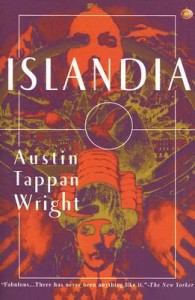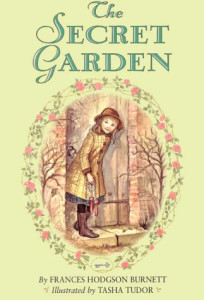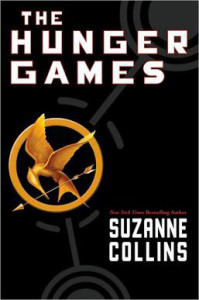It’s the quiet ones you’ve got to watch out for like when the kids are suddenly quiet and that tells you there’s trouble’s afoot. It’s the same in a story. When setting is too quiet, your story is in trouble. The problem with setting as character is that setting has no real voice, at least it doesn’t participate in dialogue directly – or does it?
Setting, we are told, must do more than be a background for characters to engage in. It should determine HOW they engage, WHY they engage and REVEAL how characters see their world, themselves and others. Setting is the voiceless character who niggles, needles, exaggerates, creates, destroys, challenges, extracts and dampens. How do you write a voiceless character?
For great ideas and the basics on creating setting and world building, you can peruse our archives. But to understand how to make setting as real and alive as your other characters, here are some things to be aware of:
6) Setting is personal. To understand what is important to POV character ask him how he’d react and feel if his world was suddenly changed or destroyed. What would he miss? What would he fight for? When a person loses their home whether it’s because of weather, war, politics or even choice, there is loss and grieving. That makes setting personal. Does setting herald change or present a conflict? Is there a storm? A volcano about to erupt, a nuclear device about to explode? An impending war? Political change? A lost love? A demand to convert?
2) Setting is the voiceless, albeit dynamic, character with whom the POV interacts and relates to varying degrees. This interaction reveals both the world and the character just as any good dialogue reveals something about its participants. How will the man in a suit react if he finds himself: in the midst of a medieval battle against dragons? Hitchhiking with a suitcase in hand? With an extremely belligerent client threatening a much needed sale? Performing on stage?
Let’s take the suit analogy one step further: Setting is more than just the background fabric of your character’s experience, it is the tailored cloth, designed, sewn and fitted just for him. In the pockets of that tailoring, he carries with him the tools he needs to be his larger than life self or not – sometimes it’s the pockets which are stitched shut or the empty ones that are the most revealing.
3) The POV can only see what’s import to him so we must be able to see and understand his world through his eyes. His experiences and his reactions form his dialogue with setting. Is a hot sunny day a reason to hide indoors, play on the beach, curse the office job, time for a cold beer in the pub, a perfect day to move the troops? Is a fog depressing or an opportunity for mischief? Thus the reader learns the most about the character and his setting when the descriptions are filtered through his point of view.
4) Setting reveals what is unique an important for the POV thus allowing his voice to come through. Not every character experiences (physically or emotionally), understands or reacts to the same environment in the same way.
5) It’s more than just geography – it’s the sociology, economy, level of technology, religion, politics, societal and personal values of the POV and those he interacts with. These are areas of potential conflict. Just as importantly, setting tells us what we need to know about the POV. What does the world/setting expect from him? Saint or serf? Hero or villain? It can also include sensory inputs: sight, smell, sound, touch, taste, heat, cold, or the passage of time. Remember the suit? In some societies, clothing symbolizes status and what the POV and others wear is important.
6) Setting is active, has impact and can change throughout the story. Is it friend or foe? Is it a place to hide (friend), a fight on a cliff (foe), dystopia (foe), utopia (friend), does it impede (foe) or help (friend) the POV’s plans? How does it help or hinder a POV from achieving his story goal? If it’s too dull, blow it out of proportion to make it larger than life just like you do to achieve maximum impact with plot or character. A POV can always change the setting, or strive to. Change may be societal, political, within a community, family or locales.
Like other characters, setting can based on an archetype. Archetypes typically offer challenges, gifts and opportunities for POVs. Does the the setting in your story have archetypal traits and if so, what can you do to make it a stronger character?
The Sorcerer: a place of magic which has interesting consequences
The Magician: where we can be made to believe anything but is it real? Is the situation sustainable? What happens when the luck wears off? Is this a place of transformation with the gift of power?
The Green Man: a life force that impels growth, vitality but growth has a dark side of death and decay.
The Mentor: possesses wisdom, is a teacher and sometimes a healer. Can serve as a motivator, conscience and gives the hero a gift once he’s earned it.
The Herald: a challenge for change the herald can be a force, a thing, an event (tornado). The herald disturbs, unbalances.
The Threshold Guardian: tests the hero by providing obstacles; not always defeated but the hero learns from the experience.
The Shape Shifter: friend or foe, will the shape shifter help or hinder/betray? Crafty and charismatic, the shape shifter confuses and tests the hero.
So maybe setting isn’t such a quiet character after all. Voiceless in some ways, but it speaks its own extremely complex language. Archetype, friend or foe, setting is a dynamic environment that is as alive as any other character because it illuminates, challenges, and demands calls the POV to action.




